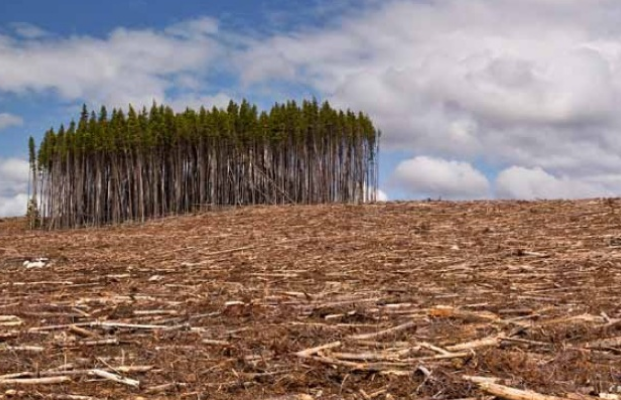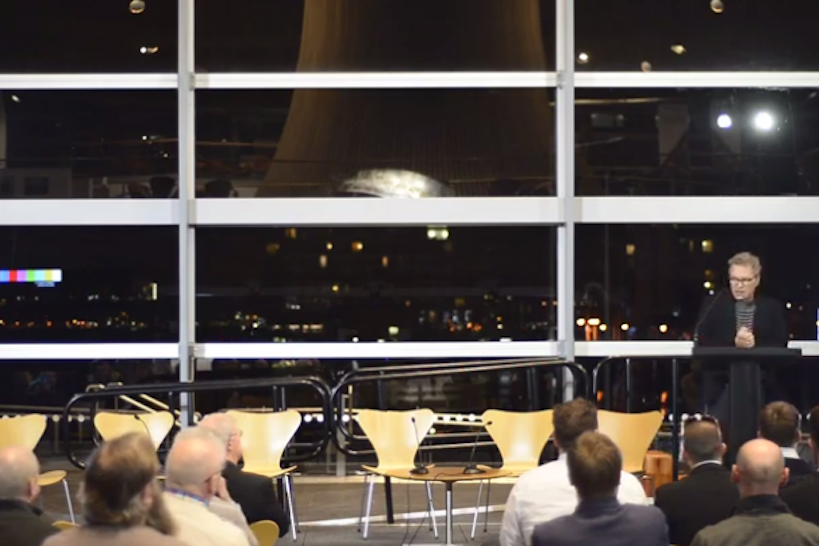Social anthropologist Dr Axel Klein spoke at the Cannabis Industries Wales debut summit in January, telling the Welsh National Assembly that Wales should follow Uruguay and Bolivia in making radical changes to its drug laws and spelling out why the regenerative qualities of hemp have such an important contribution to make towards saving the environment globally.
Axel is a research fellow at the Global Drug Policy Observatory, based in Swansea, and editor of the journal Drugs and Alcohol Today. A clutch of books and papers he has published includes the recent “Collapse of the Global Order on Drugs”. Recently he has been working on the trade in falsified prescription medicines, medical cannabis and identifying opportunities for smallholder tobacco farmers.
He has spent most of the last year in southern and western Africa, where he observed an urgent need for hemp farming – but he says international drugs legislation is blocking the way to progress. He started his speech by explaining the international policy framework in which cannabis is situated.
“Room for manoeuvre is restricted by two inter-related factors,” he said. “Both of these are the consequence of the pooling of sovereignty. What any discussion of cannabis makes us acutely aware of is how large multinational organisations can impose severe limitations on national policy-making.
“But I’m not speaking about the European Union. I’m talking about two much older organisations. One is the United Nations (UN) and the other is the United Kingdom.”
In the latter, overall policy is the responsibility of the Home Secretary, whose approach to cannabis can be summed up by the word “repression”, said Axel.
“Decisions on cannabis are made in Whitehall – slowly, cautiously and in adherence to international obligations. The UK, as a permanent member of the security council, is the champion of a rule-governed and rights-based international order, of which the drug control conventions are a cornerstone.

“The Single Convention on Narcotic Drugs clearly requires all signatories to prohibit the non-medical use of cannabis. Cannabis is deemed to hold no medicinal properties and therefore it is under Schedule 1 in the international Schedule. That issue is being currently discussed by the World Health Organisation (WHO).
“If countries do decide to make new arrangements, the response is unequivocal. The International Narcotics Control Board (INCB), which is the custodian of these treaties, responded to Canada’s decision to regulate cannabis last year very promptly – saying that it could not be reconciled with the country’s international obligations.

“The treaty is clear in its objective: to secure the health and wellbeing of mankind. My issue is not with the stated intent but the analysis, the framing, construction of the problem, and the impact and effect of the policy, which dates back to the middle of last century, though we could really track it back to before the First World War.
“The Single Convention on Narcotic Drugs was signed in 1961. The understanding of cannabis in Western countries at the time was rudimentary. People really believed that smoking cannabis would make you jump out of a window, like the scene in Reefer Madness. Ignorance made it easier to put down the rules, and many bureaucratic livelihoods and political careers have been tied up with it ever since.
“This makes it so difficult to achieve policy change, even though we know now that cannabis is quite a safe substance. When drug control apologists are asked about unintended consequences they usually go either into denial or they blame the drugs or the people. One of the classic lines is, ‘well, organised crime is in the drugs field so at least we know where it is, and if we didn’t control drugs then they would be somewhere else and it would be even worse’. So there’s no responsibility being taken for the structural arrangements that create the opportunity for crime to grow and flourish.
“For the past three years I was working in Wales and England interviewing medical cannabis users for who medicine could do little for, for things like MS, fibromyalgia, Crohn’s disease, or acute pain. They usually found great relief and even restored body function. But invariably they ran into supply problems. This dual frustration with orthodox medicine on the one hand and criminal markets on the other led many people to embark on an unlikely criminal venture. They started growing their own regular supply at a manageable cost, and they were able to experiment with the strains that best suited them, that provided the best health benefits.”
But these benefits came at the cost of having to lead a double life, of worrying about the police knocking at the door. Legislation supposedly designed to protect people is turning them into criminals, Axel said.
“In the US, the Drug Enforcement Administration (DEA) lobbied the government very strongly in 1974 to criminalise all cannabis, which killed off the hemp industry. The same happened in other countries and hemp cultivation collapsed across the world.

“This has become a contributing factor to another, unanticipated problem – desertification. As I learnt while working in Malawi, in southern Africa, the Malawi Dangerous Drugs Act of 1974 rules out all hemp cultivation, any cannabis sativa is prohibited. At the same time, farmers there were strongly encouraged to expand their tobacco cultivation. Today the country depends on 80% of its foreign exchange earnings on tobacco. I would like to call Malawi a ‘nico-state’.
“They have a real need for finding alternatives. Tobacco prices are on a downward trend, globally. Another problem is rampant deforestation, the driver of which is the need for domestic fuel for cooking. 97% of households do not have access to electricity. So what we are proposing is that we find biofuels, something they can grow instead of trees. The ideal crop for that is cannabis, is hemp. It grows very fast, 90-120 days, it provides a lot of biomass, 6-10 tonnes per hectare, which can be dried and turned into briquettes which can be burned instead. The cycle is so short it enriches the soil, allowing farmers to grow it for part of the year and combine it with a food crop like maize. And the processing can be done in smaller areas, which allows the farmers to add value, a key driver of lifting people out of poverty.”
Hemp briquettes make an ideal fuel source: they are clean, economical, produce lots of heat and are long burning.

Axel continued: “But we’re held back from expanding this because of the drug control legislation. Now you can argue this is Malawi’s problem, their parliament should sort it out. Many MPs there are privately sympathetic. But like politicians in many countries, they are not going to make amendments to the drugs act unless they are incentivised.
“It requires collective action and solidarity – globally. Desertification may not be affecting Wales but it is happening in countries across Africa. When countries become unsustainable, when their once fertile land is ruined, people will migrate north, and then it will affect Wales.
“To summarise, cannabis holds out hope for addressing multiple problems. We can make a deep impact on organised crime. We can improve medical care. But we can also address desertification because cannabis is an economical and sustainable fuel. But we cannot make use of any of it because of the international legislation.
“If we have learned anything from Brexit, it is that we can break free from multi-lateral constraints if they do not serve national interests. I would therefore love to see Wales follow Bolivia and Uruguay, which are medium-sized countries, who made radical changes, legalising the coca leaf in one case, and cannabis in the other.
“Where the international drug conventions are concerned, I think the way forward for Wales, and the benefit of mankind, would be unilateral withdrawal – or what I’d like to call Waxit.”




